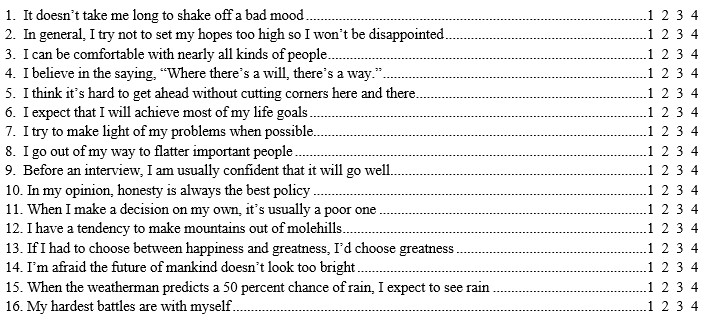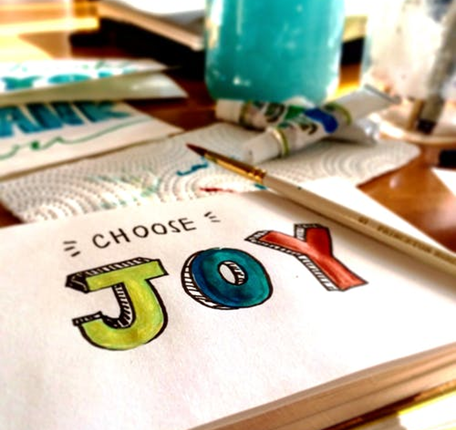How Optimistic Are You? Take the Quiz!
Some people see only storm clouds where others are able to spot silver linings. And your perspective can have a powerful influence on your well-being. Take this quiz to help determine where you fall on the optimism scale.
For each statement, choose the ranking that describes you best. (1 = not like you at all; 4 = very true of you).
Then see the answer key below…

Answer Key
- Disregard questions 8, 10, 13, and 16; they are “filler” questions, designed to minimize subconscious bias in your responses.
- Add the numbers you selected for questions 1, 3, 4, 6, 7, and 9.
- Then add the numbers you selected for questions 2, 5, 11, 12, 14, and 15
- Now subtract the second total from the first total
-18 to -5 points
- You see the glass as half empty, which may be your way of coping with anxiety. Julie K. Norem, PhD, an associate professor of psychology at Wellesley College, has proposed that “defensive pessimists” plan for the worst to avoid being overwhelmed by their emotions should a situation go awry. But negativity is most likely causing you to miss out on opportunities in life, and excessive pessimism is associated with depression.
-4 to + 4 points
- While you usually maintain a sense of hope, you’re still highly aware of potential disappointments. Negative expectations may make it tough for you to feel excited about your prospects. And less enthusiasm can mean less motivation, less confidence, and ultimately, less chance at success.
+5 to +10 points
- From your perspective, things usually work out. Your ability to focus on the potential for good allows you to see the best in yourself, too. This kind of optimistic bias can promote well-being. People who score in this category tend to be more outgoing, more resilient, and happier. Congratulations on your psychologically healthy outlook!
+11 to +18 points
- You are one of the few super-optimists. Only 10% of people score above 10 points (if they are honest, of course…). You typically dismiss the likelihood of grief – because no matter how events unfold, you are confident in your ability to shape situations to your advantage. But it wouldn’t hurt to be a little more cautious.
Gerald Matthews, PhD, is a psychology professor at the University of Cincinnati.

